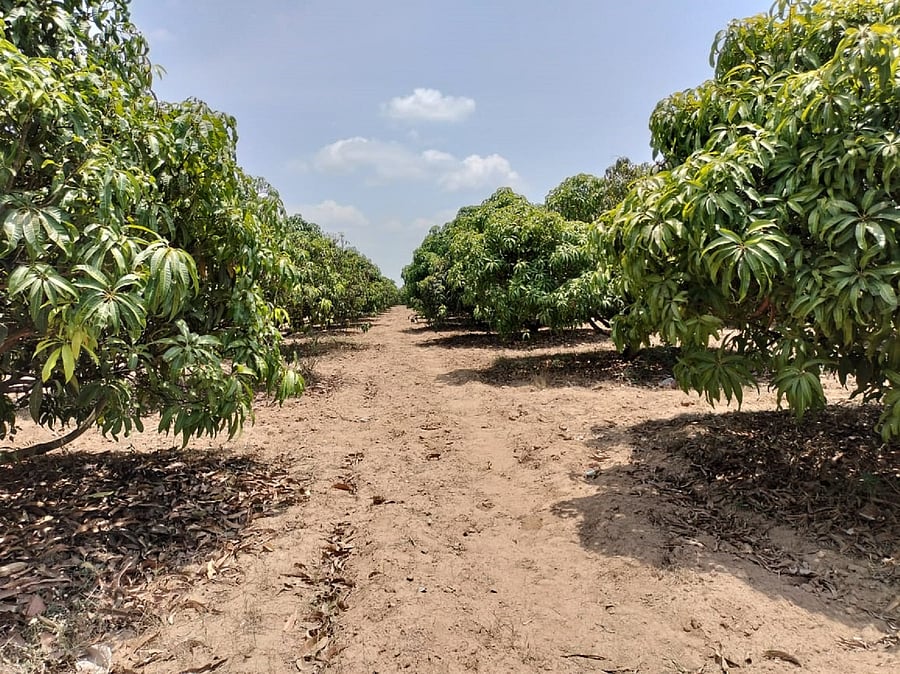
Mango trees in a farm of Channagiri taluk in Davangere district.
Credit: DH Photo
Davangere: The absence of a remunerative price in the market and constant fluctuation in yield have forced several mango growers in the Santebennur area of Channagiri taluk, a major mango cultivation area of Davangere district, to switch to arecanut crop.
As a result, the area under mango cultivation has decreased from 25,000 hectare to 7,773 hectares in the last decade. This is likely to fall further in the coming days.
Sources in the Horticulture Department stated that badami mango, also known as Alphonso of Karnataka, is grown on a large scale in Santebennur area in Channagiri taluk. The unique feature of this variety is that the yield is high in one year and lower the next year. Thus, many growers found mango cultivation unprofitable and have started growing arecanut, which can give better returns.
Speaking to DH, Davangere District Horticulture Department Deputy Director Raghavendra Prasad said Channagiri taluk is a major badami mango cultivation area in the district. Besides this, mango is also grown on around 30 hectares in Honnali and Nyamathi taluks. However, frequent fluctuations in crop yield and low price made growers prefer arecanut over mango.
He added that they are expecting 5,320 tonne of mango yield this year.
Channagiri taluk Senior Assistant Director of Horticulture Sreekanth confirmed that the area under mango cultivation is declining in Channagiri taluk. “The price of per quintal arecanut will be around Rs 40,000 or above throughout the year. It often goes up in some months. But it is not the case with mangoes. A mango grower benefits if he gets around Rs 120 per kg.
But many times, they get around Rs 80 to 90 per kg. Also, most growers lease out their mango trees during the harvesting season, and this is not profitable. The areca growers will get profit even if they lease out areca trees during the harvest,” Sreekanth explained.
Certificates to 200 organic mango growers
On the cultivation of organic mangoes, he said last year, the department had a target of identifying 400 organic mango growers but they found only 200 growers. They were issued certificates after their produce was examined. People can buy mangoes grown under organic farming method from them.
Swamy, a mango grower, said farmers who used to grow mango on over 10 acres of land in Santebennur area have reduced it to two to three acres. They have planted areca saplings in the remaining acres of land. This trend is being seen in nearly all mango-cultivation villages of Channagiri taluk.